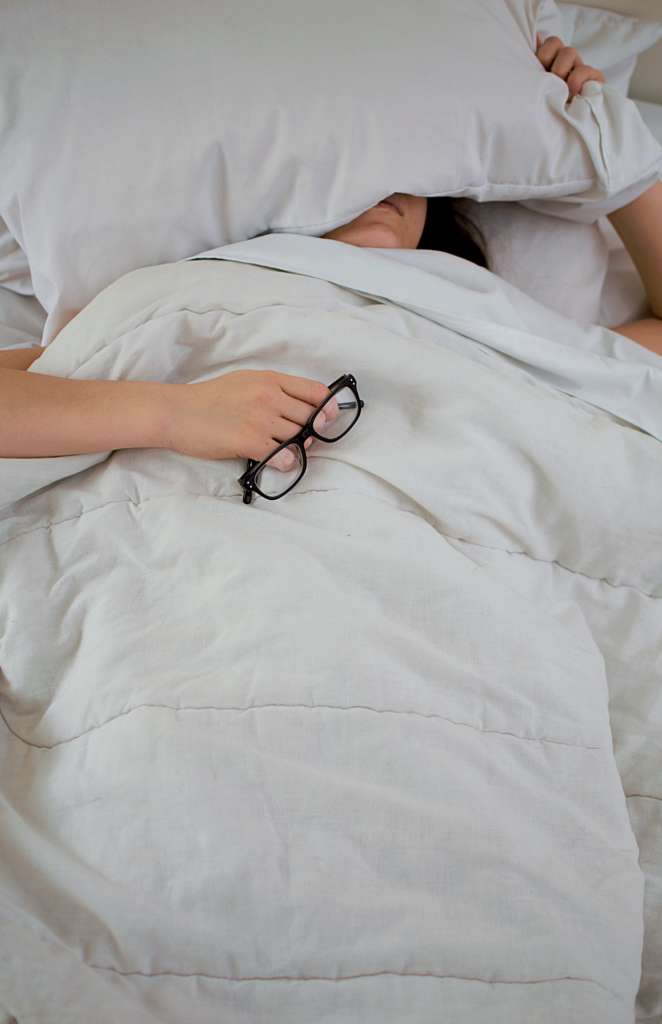This article was first published in the June issue of Savour Magazine.
By Dr. Angela Lim, Medical Doctor, CEO and Co-founder of Clearhead.

Sleep is a key part of our wellbeing, but yet we never seem to be able to get enough of it. Based off of Clearhead’s data reports, we found that the majority of Restaurant Association members reported feeling tired daily. Working in hospitality often requires long hours spent on your feet in a fast-paced environment. This is taxing for anyone, and even worse if you are sleep deprived on top of all of that.
There is a well-known Chinese expression which translates to “revenge bedtime procrastination”. This can be described as staying awake late at night to reclaim the lack of free time you have had in the day. This can consist of scrolling through your phone or any other activity which is the modern day “wind down time”. However, this bedtime procrastination is using up precious time that could be spent recharging and resting. I’m sure we have all been there.
The amount of sleep that an individual needs varies and often changes with age, but research suggests that sleeping too little (less than six hours) or too much (more than 9 or 10 hours) is hazardous to your health. So, getting the right amount of sleep is important.

Short term sleep disturbance although frustrating, is normal, and you can do something about it. There can often be circumstantial factors contributing to a bout of insomnia, for example; stress, ill health, depression or recent personal trauma. Sleep difficulties can also be related to physical health such as, sleep apnea, anaemia or menopause. It’s always a good idea to see your GP if your sleep issues are becoming a long-term problem, so as to rule out a physical cause of poor sleep.
So, what can you do if you are not sleeping?
In a healthy individual, assistance for sleep focuses on a few things. For short term sleep problems, you should try to avoid taking sleeping aids (hypnotics, tranquillisers) as they tend to become tolerated over time, meaning you require more and more of them to get the same effect.
Here are some alternative suggestions to help you get a good night’s sleep:
- Establish a sleep routine – go to bed the same time each night and wake up at the same time every morning.
- When you get up in the morning, make sure you expose your eyes to normal daylight first thing on wakening. This helps your body to start producing melatonin. The amount of melatonin in your body peaks at night and this is what makes you feel sleepy.
- Start preparing for sleep at least 30 minutes before bed time. Ensure the bed is ready, close the curtains and prioritise phone-free time.
- Ensure your room is as dark as you can get it and that it is not too warm.
- Incorporate a simple relaxation technique prior to bed time (breathing relaxation, meditation, progressive muscle relaxation, mindfulness exercises.)
- Exercising during the day also contributes to a better sleep.
- Avoid long naps during the day time.
- Reduce caffeine intake overall and especially after 4pm.
- Avoid alcohol. Although alcohol can help you get off to sleep, once the depressant effect of alcohol wears off, you tend to get a slight arousal response and you find yourself awake at 2am.
- Reduce sugar intake throughout the day and refrain from large meals late in the evening.
- Avoid high glycemic foods before sleeping (i.e., processed carbohydrates) which can cause a blood sugar spike and then a drop, which will disrupt your sleep.

Finally, if it’s your mind that won’t allow you to get off to sleep, here is a few tips to help with that.
- Writing down the things going on in your head can help you feel less overwhelmed. Keep a piece of paper and a pen by your bed for this purpose.
- Practicing daily gratitude and writing it down in a gratitude journal is a great way to increase your sleep quality as it brings your mind to a positive place before you sleep. So when those unhelpful thoughts are running around in your head, try writing down a minimum of three things you are thankful for.
- Another helpful method when you can’t sleep is to connect with your breath. Just focus on the in and out process of the breath. Every time the mind wanders, just bring it back to the breath. It tends to stop thought processes from getting out of control.
- Rather than laying there getting frustrated, try getting up for 30 mins or so, have a hot drink. Stay off the computer as the light emitted is known to interfere with the nocturnal system in your brain. Instead read a book or find some other quiet activity.
- If all else fails. Let it go. Don’t panic, don’t fret. Relax and rest. Enjoy the peaceful process of being able to lie down, enjoy the peace and quiet. Nothing stops sleep like desperately trying to get to sleep.
How Clearhead can help you have a good night’s sleep?
Clearhead is a digital mental health and wellbeing platform that is free to use for Restaurant Association members. Clearhead has a range of short, interactive tools which will help you relax, wind down and get ready for a good night’s sleep. You can use Clearhead tools such as Full Body Muscle Relaxation, Deep Breathing, Muscle Relaxation and Gratitude Practice to help you release any tension which has built up over the day and bring calmness to your body and mind.
You can find Clearhead on the Apple/Google Play store or on your desktop using a special member link (https://ranz.myclearhead.com/en-NZ).
To get in contact with Clearhead: contact@clearhead.org.nz or 09-2184926.
